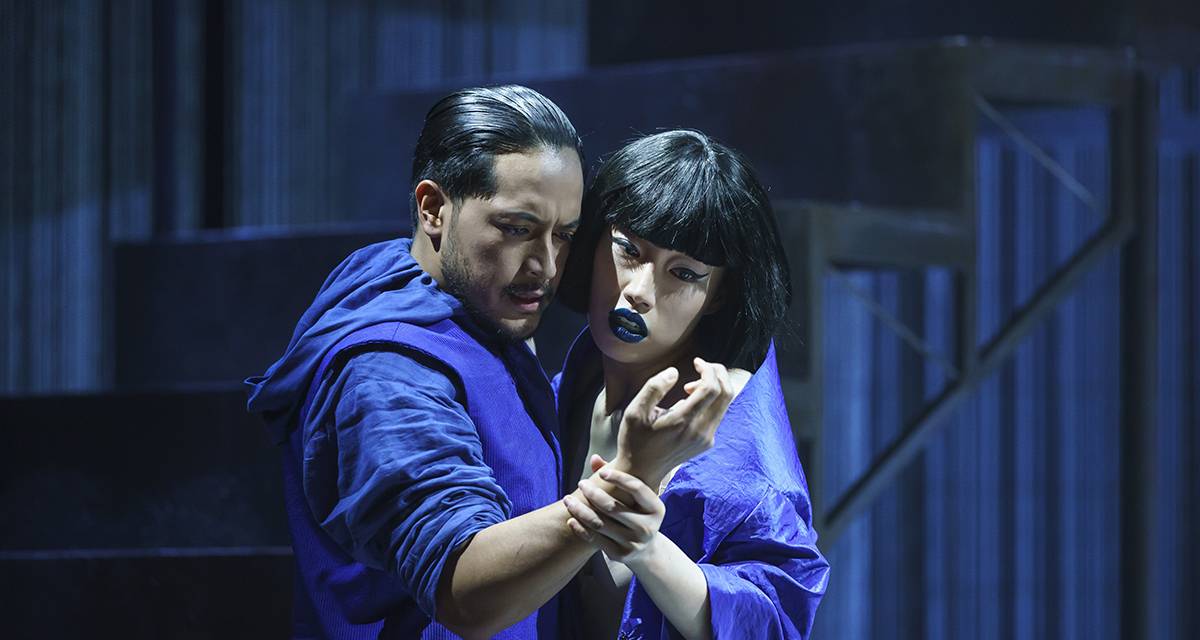The gods of Greek mythology were cruel and capricious beings, caring little for the lives of humans, who live and die and live again at their whim. That seems to be the message of the new production of Phaedra which opened at the Royal Opera House’s Linbury Theatre last night.
Hans Werner Henze’s opera reimagines the Classical myth of Phaedra, wife of Minataur-killing Theseus, and her stepson Hippolytus, with whom she is in unrequited love. Driven to despair by his rejection, and goaded by a jealous Aphrodite, Phaedra plots a bloody revenge.
This production is by the Royal Opera’s Jette Parker Young Artists, a programme that supports the development of young professional artists. It’s directed by Noa Naamat and Edmund Whitehead conducts the Southbank Sinfonia.
The performance opens on a dimly lit stage. The set is minimal – just two curved staircases and a rotating platform. We’re confronted with the dying Minotaur and a four-strong chorus setting the scene. The Minotaur maintains a brooding, malevolent presence throughout.
Chinese mezzo-soprano Hongni Wu is excellent as Phaedra. Her darkly sensual voice is perfect for the role and her fine acting conveys the character’s rage and desire for revenge. She dominates whenever she is on stage.
Wu brings power and agency to the role. Phaedra may be a pawn in Aphrodite’s scheming, but she’s no victim. This contrasts with New Zealand tenor Filipe Manu’s Hippolyt, who is touchingly innocent and somewhat at the mercy of the three women in his life. American countertenor Patrick Terry adds a welcome light touch of humour to his Artemis in Act Two’s resurrection scene.
This pared-down production is powerful and affecting, at times disquieting and at times mesmerising. It runs at the Royal Opera House until 20 May. See our events pages for more details.

